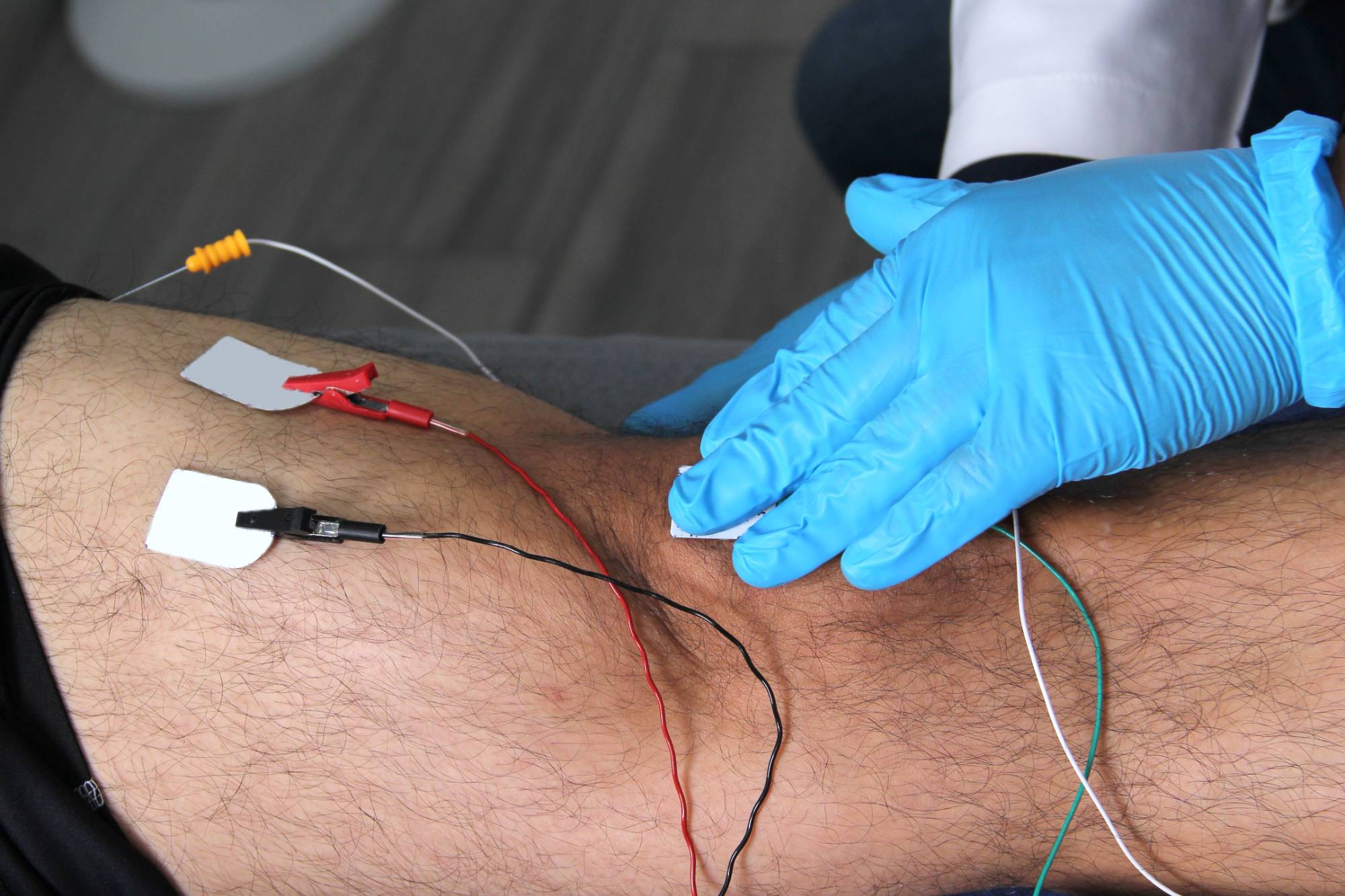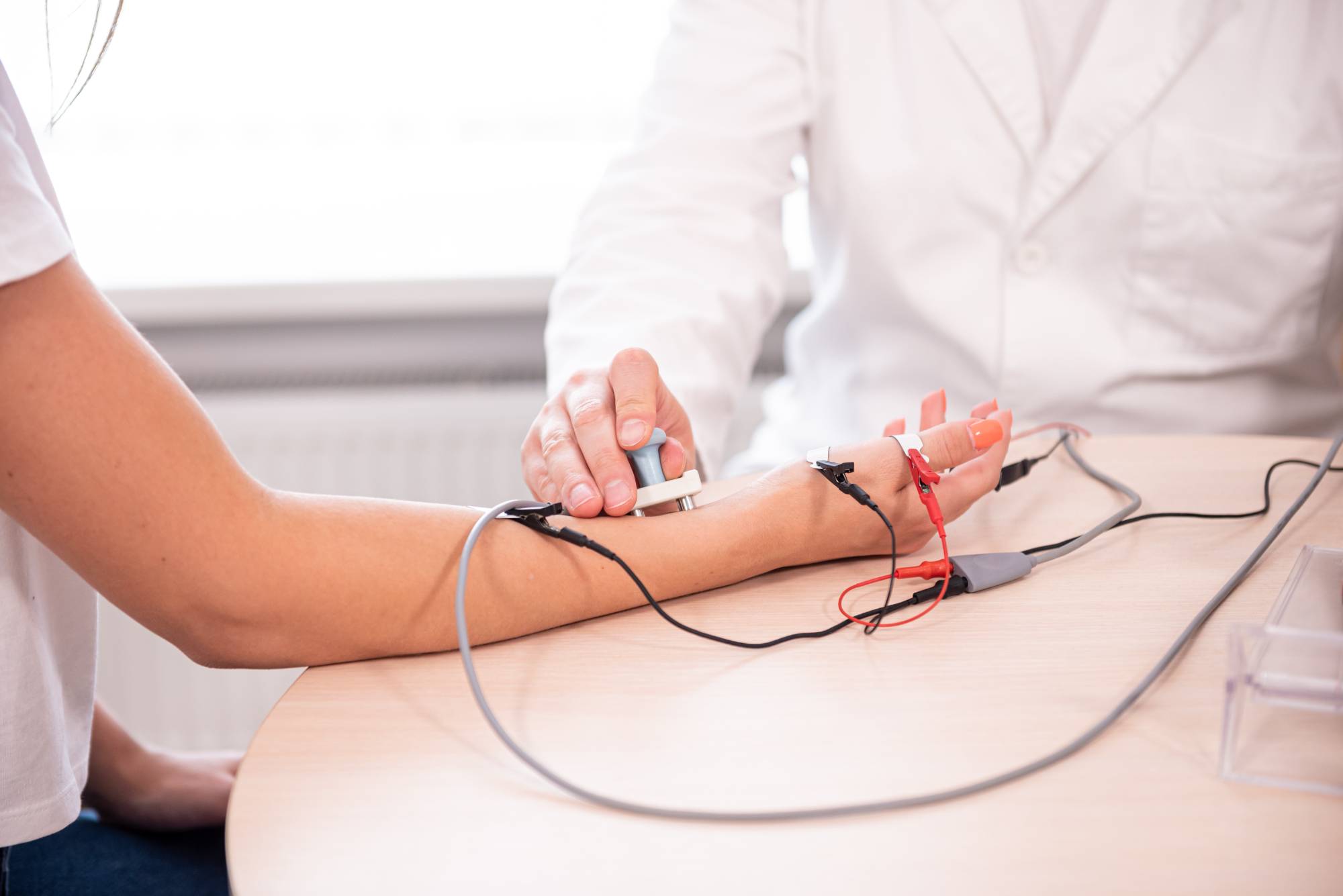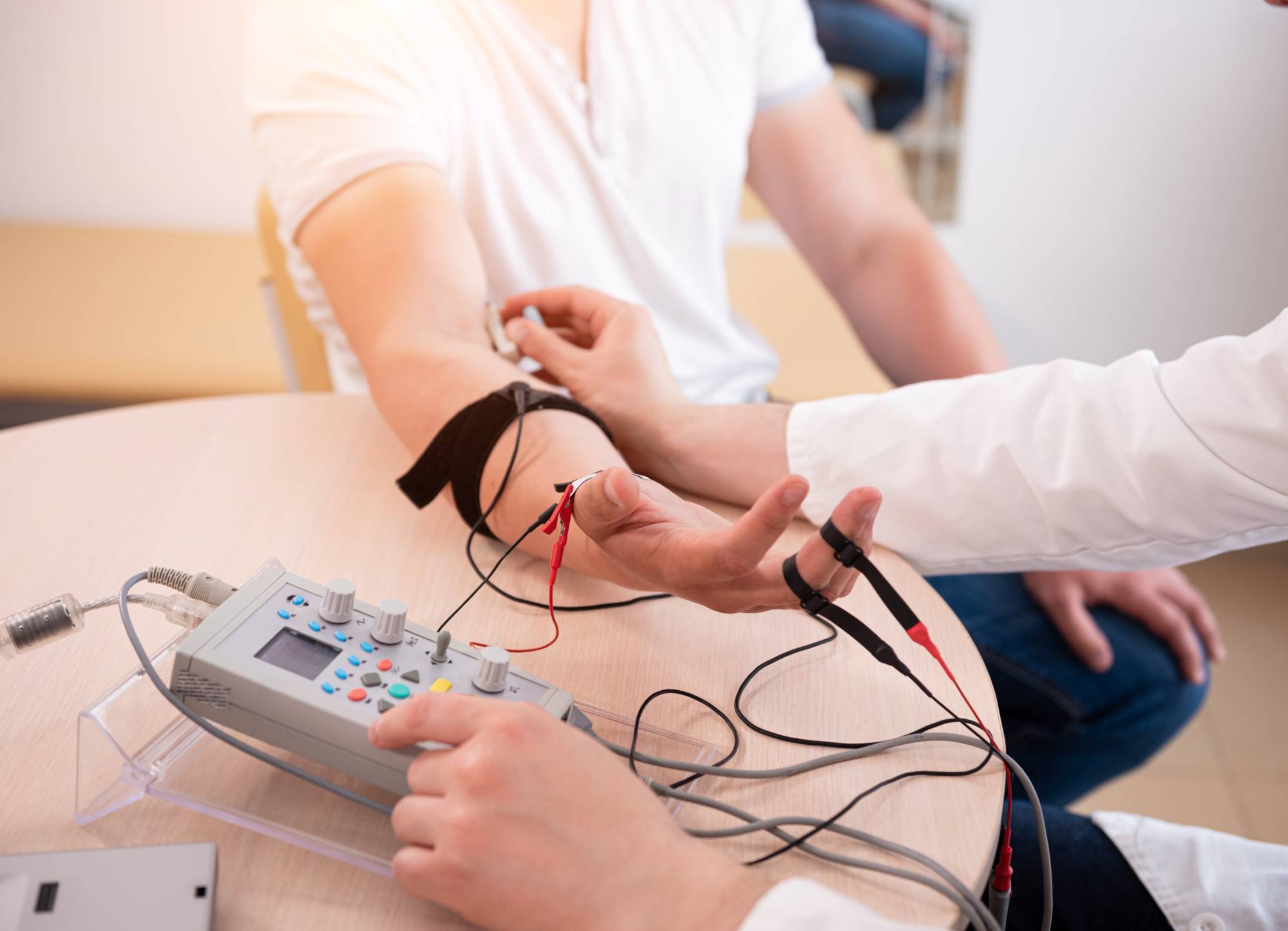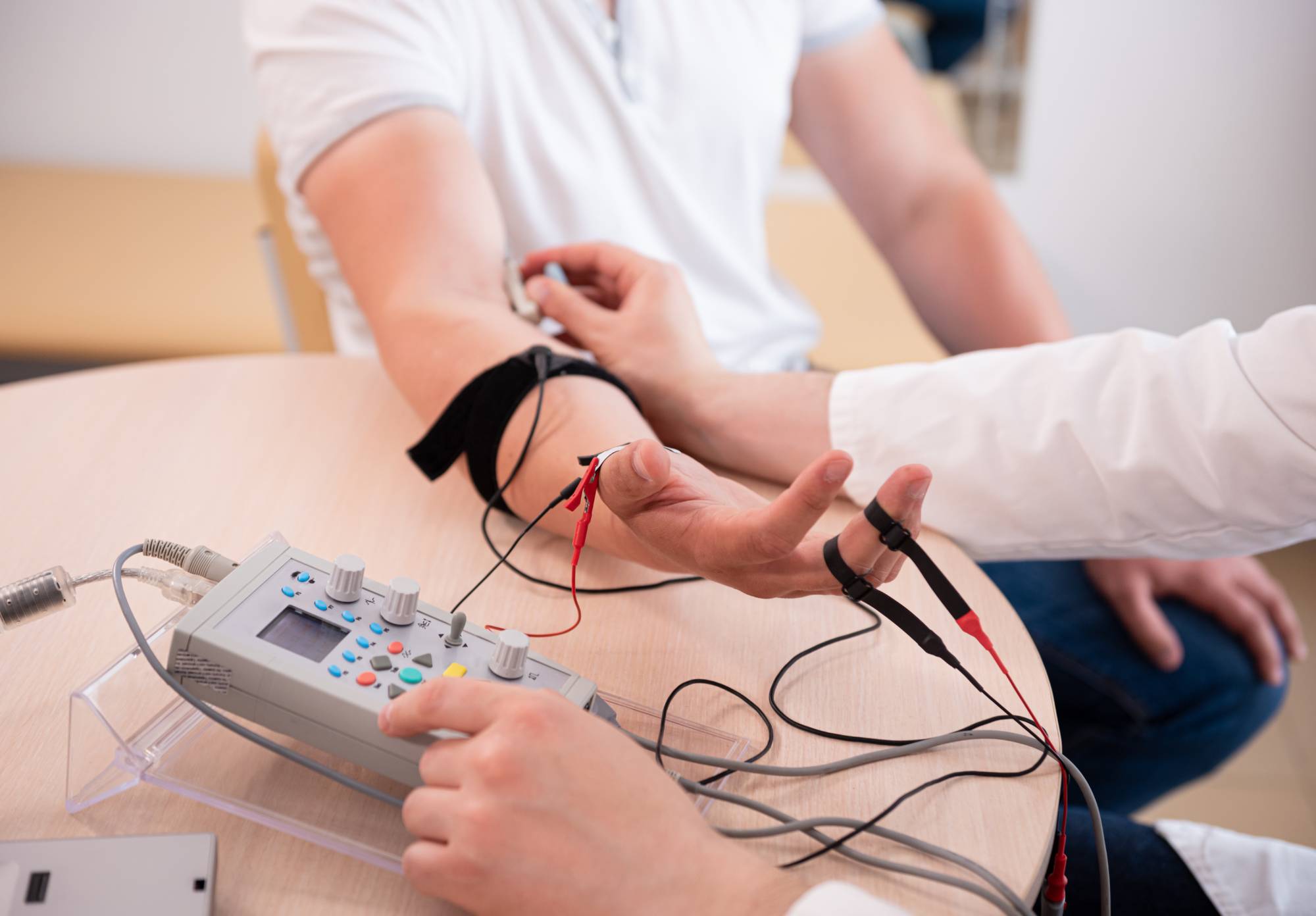Precise EMG testing that pinpoints exactly what’s causing your numbness, tingling, or muscle weakness.

Reviews

You’ve been dealing with that tingling in your hands for months. Or maybe it’s the numbness in your feet that’s getting worse. The muscle weakness that makes simple tasks frustrating.
EMG testing gives you the definitive answers you need. This comprehensive diagnostic test measures how well your nerves and muscles communicate, pinpointing exactly where the problem lies.
When you know what’s actually wrong, you can stop guessing and start treating the real issue. No more wondering if it’s serious. No more trying treatments that don’t work because they’re targeting the wrong problem.
You’ll walk out with clear results and a path forward that makes sense for your specific condition.
NY Spine Medicine has been serving the East Little Havana community with advanced diagnostic testing and spine care. We understand that getting an accurate diagnosis is the foundation of effective treatment.
Our board-certified specialists use state-of-the-art EMG equipment to ensure precise results. We’ve helped thousands of patients in South Florida get the answers they need about their nerve and muscle conditions.
We accept most insurance plans, including Medicare, making comprehensive testing accessible to the community.

Your EMG testing appointment typically takes 30-60 minutes and involves two parts. First is the nerve conduction study, where small electrodes are placed on your skin to measure how fast electrical signals travel through your nerves.
The second part is the electromyography, where a thin needle electrode is inserted into specific muscles to measure their electrical activity. Yes, there’s some discomfort, but most patients find it very tolerable.
You’ll get your results the same day. Our specialist will explain exactly what the test shows, what it means for your condition, and discuss your treatment options right then and there.
No waiting weeks for answers. No confusing medical jargon without explanation. Just clear information about what’s happening with your nerves and muscles.

Ready to get started?
Your EMG testing includes both electromyography and nerve conduction studies in one comprehensive appointment. This combination gives a complete picture of your nerve and muscle function.
The testing can diagnose conditions like carpal tunnel syndrome, diabetic neuropathy, pinched nerves, muscle disorders, and other neurological conditions affecting your daily life.
You’ll receive detailed results interpretation, a clear explanation of your diagnosis, and discussion of treatment options specific to your condition. We coordinate with other specialists when needed to ensure you get comprehensive care.
Many of our patients in East Little Havana have found relief after years of uncertainty once they finally had an accurate diagnosis through proper EMG testing.

New York:
Florida:
Support